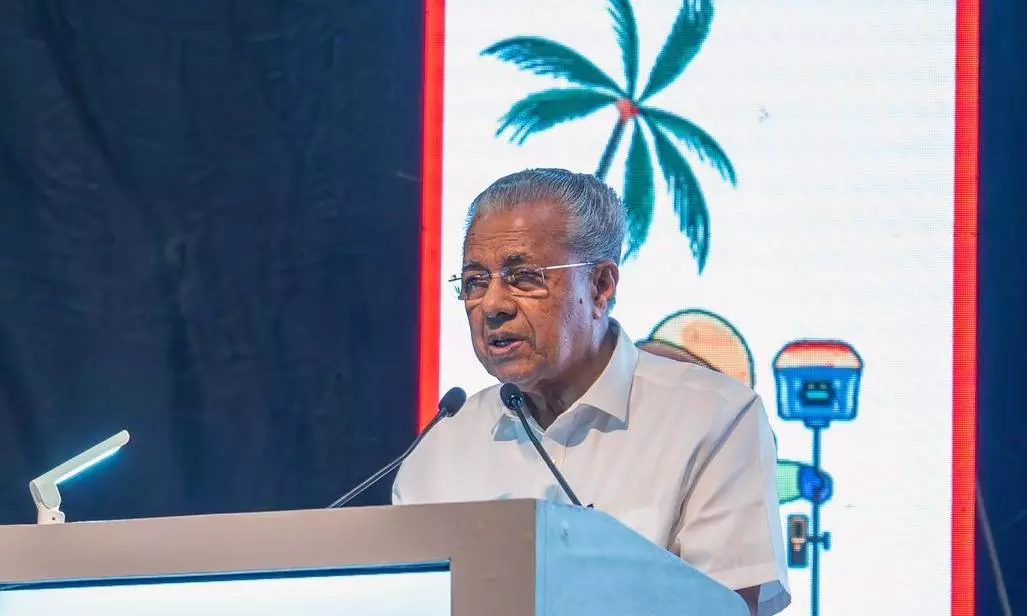
Kerala Assembly passes resolution against SIR; cites Bihar case, flags NRC, CAA concerns
Resolution questions EC’s hurry to conduct the exercise and contentious documents sought; states that it could be used as a backdoor attempt to implement NRC

The Kerala Legislative Assembly on Monday (September 29) unanimously passed a resolution voicing strong opposition to the Election Commission (EC)’s move to conduct a Special Intensive Revision (SIR) of the electoral rolls. The resolution, tabled by Chief Minister Pinarayi Vijayan under Rule 118, warned that the exercise could become a backdoor attempt at implementing the controversial National Register of Citizens (NRC).
It was passed with a couple of amendments suggested by MLAs.
Also read: Congress questions Pinarayi Vijayan’s 'silence' on voter list revision in Kerala
CM cites Bihar example
The chief minister pointed out that the SIR process carried out earlier in Bihar has already triggered widespread anxiety, as it allegedly led to arbitrary deletions of names from the voter rolls. “The politics of exclusion was at play in Bihar. What happened there raises concerns about a similar agenda being pursued at the national level,” the resolution noted.
The Assembly expressed concern about the timing of the exercise. Kerala is heading into local body polls shortly, to be followed by the Legislative Assembly elections in 2026. Undertaking an SIR at this juncture, the House argued, cannot be seen as innocent or routine. “A process like SIR demands careful preparation and broad consultations. Rushing into it creates apprehensions of an attempt to subvert the people’s mandate,” the resolution stated.
Also read: Hit hard by rows, internal rifts, Kerala BJP kicks off local poll campaign with house visits
Contentious conditions
It further pointed out that the last time Kerala undertook such an intensive revision of its voter rolls was in 2002. Basing the present exercise on that framework, the House observed, was “unscientific and unjustified.”
One of the most contentious aspects of SIR, as highlighted in the resolution, is the condition that those born after 1987 must provide citizenship documents of either parent to be eligible as voters. For those born after 2003, the requirement extends to submitting the citizenship papers of both parents.
The Assembly warned that such conditions effectively infringe upon the universal adult franchise guaranteed under Article 326 of the Constitution.
“Denying voter registration for want of documents amounts to disenfranchising citizens of their fundamental democratic right,” the resolution said.
Also read: How Kerala’s LDF govt is using an Opposition weapon to attack it instead
Concerns over CAA
Studies, the House noted, show that such documentary requirements would hit marginalised communities the hardest. Minority groups, Scheduled Castes, Scheduled Tribes, women, and economically weaker sections would form the bulk of those excluded from the electoral rolls. The rights of expatriate voters already on the rolls also risk being undermined.
The resolution argued that the push for SIR could dovetail with efforts to reinforce the Citizenship Amendment Act (CAA), which critics say communalises citizenship. “Those attempting to communalise citizenship will use SIR as an instrument to achieve their agenda. This poses a direct challenge to democracy itself,” it warned.
Also read: Ayyappa politics takes centre stage in Kerala ahead of elections
Appeal to EC
Calling for transparency, the Assembly urged the EC to refrain from measures that compromise fundamental rights and instead carry out routine electoral roll revisions in a fair and inclusive manner.
The resolution was passed with the support of both the ruling Left Democratic Front and the opposition United Democratic Front, underlining a rare moment of unanimity in the House.
In its concluding line, the Assembly stated: “This House unanimously demands that the Election Commission step back from actions that undermine universal suffrage and instead ensure a transparent, impartial revision of the electoral rolls.”

